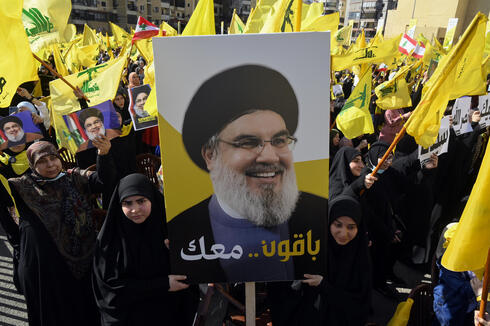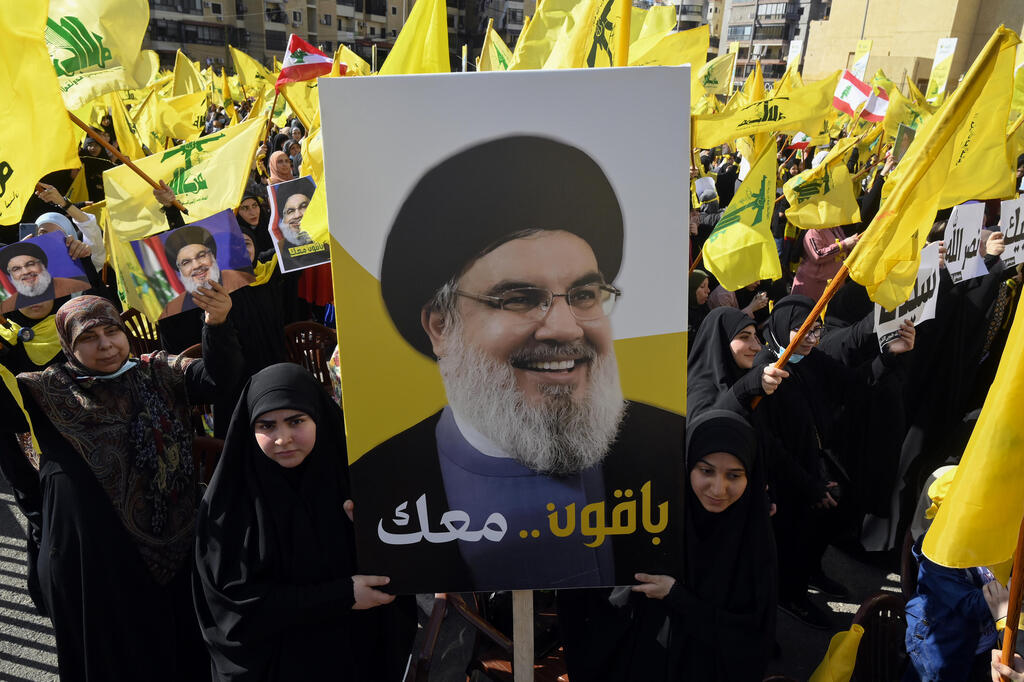
ISRAEL AT WAR
A war with Israel would shatter what’s left of Lebanon's economy
Lebanon has had no president for almost a year, is run by a temporary government, has rising inflation and poverty, and depleted foreign exchange reserves. Will economic considerations prevent Hezbollah from entering into a broad war with Israel?
In Lebanon, there is a growing fear of a significant flare-up, possibly leading to an all-out war between Hezbollah and Israel, amidst the ongoing conflict with Hamas in the Gaza Strip. The Lebanese border has remained tense since the fighting began on Saturday. Recent days have seen terrorist groups infiltrating from Lebanese territory, rocket attacks towards the Galilee, and the firing of anti-tank missiles and mortars at IDF posts along the border. On Monday, three Hezbollah operatives were killed in southern Lebanon by IDF forces.
The prevailing assessment until recently was that Hezbollah, facing internal pressures within the Lebanese system, was not interested in an all-out confrontation with Israel. However, recent events with Hamas have shown that relying on such conceptions regarding terrorist organizations' intentions is dangerous. Hezbollah's leader, Hassan Nasrallah, has also adopted a more aggressive rhetoric compared to previous years, especially in the past few months. On the other hand, Lebanese political figures, including interim Prime Minister Najib Mikati, have claimed to have received explicit assurances from Hezbollah leaders that the organization does not plan to engage in a campaign with Israel. However, such promises should be viewed cautiously.
The internal pressure on Hezbollah not to intervene in the fighting stems from the difficult political and economic situation in Lebanon and the fear that a large-scale campaign with Israel will lead to the complete collapse of what remains of the country's institutions and economy. As of today, Lebanon has been without a president for almost a year and is run by an interim government. In addition, as of last July, Lebanon does not have a permanent central bank governor after the previous governor exited following three decades and there is no agreement between the various political factions regarding his replacement. The political paralysis does not allow the Lebanese economy any chance to recover and this is why Lebanon fears that the situation will only worsen in the event of war.
In recent days, quotes from economic circles have been published in the Lebanese media explaining why the Lebanese economy will not be able to withstand an all-out campaign against Israel. These publications are intended to try and put pressure on Nasrallah so that he does not escalate the situation.
Fear of American sanctions
Fear of American sanctions is also a concern. The massive damages expected from the war would strain Lebanon's ability to cover the costs, given that the foreign exchange reserves of the central bank currently stand at only $7 billion. This is in stark contrast to the $30 billion reserves in 2018 when the current economic crisis began in Lebanon. There is also the fear that Hezbollah's involvement in the conflict could trigger a strong American response and the imposition of harsh sanctions, potentially affecting remittances from Lebanese people living abroad, which account for 38% of the country's GDP.
Lebanon is wary of Israel's threats to set back the country "50 years" and the lasting damage caused to its infrastructure during the Second Lebanon War in 2006. Nasrallah himself expressed regret over the extent of destruction that war caused in Lebanon. The fear is that Israel will again target Lebanon's already neglected infrastructure.
If the conflict extends to the maritime domain, the drilling work in Lebanese Block 9, which holds economic potential following an agreement with Israel about a year ago, is likely to be halted. Lebanon is expected to announce by the end of the year whether there are commercial quantities in this reservoir, which is currently seen as Lebanon's sole economic horizon.
The infrastructure and the drilling are in danger
Damage to infrastructure could also occur at Beirut's international airport, the only airport in Lebanon. This would negatively impact one of the few sectors that managed to function this year in Lebanon - the tourism sector. In fact, last summer's tourism season saw success, with around 700,000 incoming tourists in August, marking a 25% increase compared to August 2022. Hotel occupancy rates reached about 70%. Lebanon had hoped for tourism revenues of approximately $9 billion this year, compared to $6.5 billion in 2022.
In conclusion, both Lebanon and Hezbollah understand the dire consequences of a war with Israel. It would worsen Lebanon's already high inflation rate, currently around 250% per year, increase poverty, which currently hovers around 80%, and further erode the purchasing power of the Lebanese population. The decision of whether these factors will prevent Hassan Nasrallah from ordering a conflict with Israel at the current point in time remains open and depends on the relationship between Beirut and Tehran.














